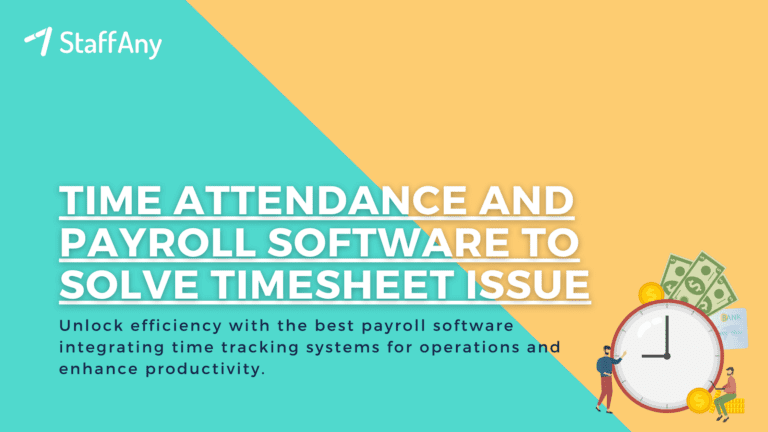In today’s global marketplace, the accurate and informative labelling of food products is essential. Consumers rely on product labels to make informed choices about what they purchase and consume. In Malaysia, strict regulations are in place to ensure that food products are labelled correctly and transparently.
In this article, we’ll delve into the significance of product labelling, explore the specific requirements in Malaysia, and provide insights to help businesses navigate these regulations effectively. Let’s get started!
Why Is Product Labelling Important?
Product labelling plays a crucial role in the modern marketplace. Let’s explore several key reasons why product labelling is of paramount importance:
1. Consumer Information
One of the primary functions of product labelling is to provide consumers with essential information about the product they are considering purchasing. This information includes the product’s ingredients, nutritional value, and allergen content. With this information at their fingertips, consumers can make informed choices that align with their dietary preferences and restrictions.
2. Food Safety
Product labelling is a fundamental aspect of food safety. It enables consumers to identify and avoid ingredients they may be allergic or intolerant. In cases of product recalls or safety concerns, clear labelling allows authorities to quickly locate and remove affected products from the market, reducing the risk to consumers.
3. Brand Identity
For businesses, product labels are more than just informative; they also serve to establish and reinforce their brand identity. A well-designed label can convey a brand’s values, quality, and unique selling points. Consistency in labelling and attractive design can help products stand out and create a memorable brand image in a competitive market.
4. Compliance with Regulations
Non-compliance with product labelling regulations can have serious consequences for businesses. It can lead to legal issues, fines, and damage to a company’s reputation. Following product labelling regulations ensures businesses maintain their integrity and avoid costly setbacks.
5. Consumer Trust
Clear and accurate product labelling builds trust between consumers and businesses. When consumers can easily access information about a product’s contents and attributes, they are more likely to trust the brand. This trust fosters customer loyalty and encourages repeat purchases.
Read more: Understanding 3 Types of Business Licences in Malaysia
Product Labelling Requirements in Malaysia
In Malaysia, food labelling standards must adhere to the guidelines outlined in the Food Regulations 1985. Selling or promoting food products that do not conform to these labelling standards is strictly prohibited. The essential elements of these labelling requirements are:
1. Language
For imported foods, the label must be in either Bahasa Malaysia or English. However, there’s the option to include translations in other languages. Certain products, like infant formula and specific milk products, require the label to be in Bahasa Malaysia, with translations permitted.
2. Designation/Description of the Food
The designation or description of the food should contain the common name of its principal ingredients. Scientific names of ingredients are not acceptable. In the case of mixed or blended food, the label should clearly state that the product is “mixed” or “blended” with an appropriate food designation.
3. Special Indications
Certain statements must be included on the label if the food contains beef or pork, or its derivatives, or lard. The statement should specify “CONTAINS (state whether beef or pork, or its derivatives, or lard).” Additionally, if the food contains added alcohol, the label must state “CONTAINS ALCOHOL” in capital bold-faced lettering of a non-serif character not smaller than 6 points.
4. Ingredient Labelling
Ingredients, except for water, food additives, and added nutrients, must be listed in descending order of proportion by weight. If the food contains ingredients known to cause hypersensitivity (such as gluten, nuts, fish, milk, and eggs), these ingredients must be declared on the label.
5. Food Additive Labelling
Food additives must be labelled with the functional class and the name or INS number. If the food additive is listed in the International Numbering System (INS), a statement of the functional class should be followed by the name of the food additive or INS number in brackets.
6. Ingredients Derived from Animals or Modern Biotechnology
If ingredients or food additives are derived from animals, the common name of the animal should be stated. For products containing edible fat or oil, the source, whether animal or vegetable, must be labelled. For products obtained through modern biotechnology, the label should indicate if the food is genetically modified or produced from genetically modified organisms.
7. Minimum Net Weight/Volume/Number of Package Content
All food labels must include a statement regarding the minimum net weight, volume, or number of the package’s content. The lettering in this statement should be uniform.
8. Name and Address of Manufacturer/Importer/Country of Origin
For imported food, the label should include information about the overseas manufacturer, owner of the rights of manufacture or packing, agent, importer in Malaysia, and the country of origin. “Country of origin” refers to where the food last underwent a treatment or process resulting in a substantial change in nature.
9. Best Before/Expiration Date Requirements
Certain foods are required to list their expiration dates. These include various products like canned infant food, chocolate, meat products, and more. Even for products not listed, the format for listing expiration dates should follow the food labelling regulations.
10. Prohibited Statements/Claims
There are several prohibited statements and claims that cannot appear on food labels. These include misleading claims about quality, purity, health benefits, and claims that suggest a food can prevent, treat, or cure a disease.
11. Nutrition Labelling
Nutrition labelling is mandatory for most food packages. It provides consumers with essential information about the nutrient content of the product. However, it doesn’t apply to small packages with a total surface area of less than 100 cm2 and returnable glass bottles, provided no nutrition claims are made.
Read more: Basic Salary in Malaysia and Its Regulations
Penalties for Violating Product Labelling Requirements
In Malaysia, adherence to product labelling requirements is not just a matter of compliance; it’s legally enforced. Failure to comply with these regulations, as stipulated in the Food Regulations of 1985, can result in severe penalties. Violations may lead to fines, imprisonment for a term not exceeding three years, or both.
Additionally, food products must also meet the broader regulations outlined in the Food Act of 1983 and the Food Regulations of 1985, failure of which can result in similar legal consequences. It is imperative for businesses to understand and strictly adhere to these regulations to avoid legal ramifications.
Read more: 9 Key Amendments of Malaysian Employment Act 1955
Elevate Your Business Efficiency with StaffAny’s Roster Planning Software
In the fast-paced world of business, adapting to changing schedules and operational needs is crucial. StaffAny recognises these challenges and offers a comprehensive solution through our roster planning software. Seamlessly integrate this tool into your operations to not only meet the demands of evolving schedules but also to ensure compliance with product labelling requirements in Malaysia.
1. Efficient Cost Control with Smart Tools
Streamline your cost control with StaffAny’s online timesheet software. Prevent early clock-ins, automate rounding, and enforce auto clock-outs to maintain budgeted costs. The unlimited user feature allows seamless access via desktop or mobile apps, enabling easy collaboration among team members from any location.
2. Reduce Hours Discrepancies
StaffAny goes beyond traditional time tracking. By allowing staff to view their timesheets, it becomes a collaborative tool that resolves hour discrepancies and improves communication within your team. This not only enhances trust but also eliminates pay discrepancies, ensuring fair compensation for every employee.
3. Centralised Record-Keeping Across Multiple Locations
Managing clock-in records from various locations becomes effortless with StaffAny. Whether it’s one or a hundred hours, our system consolidates records for simplified payroll administration. This centralised record-keeping is invaluable for HR and administrative purposes, facilitating task management and accurate tracking of employee work hours.
StaffAny’s roster planning software is not just a solution for efficient workforce management; it’s a strategic tool for businesses aiming to comply with the intricate product labelling requirements in Malaysia.
By incorporating StaffAny into your operations, you can streamline your scheduling processes and ensure accurate and transparent time tracking, contributing to compliance and trust-building within your team. Elevate your business efficiency today with StaffAny!











